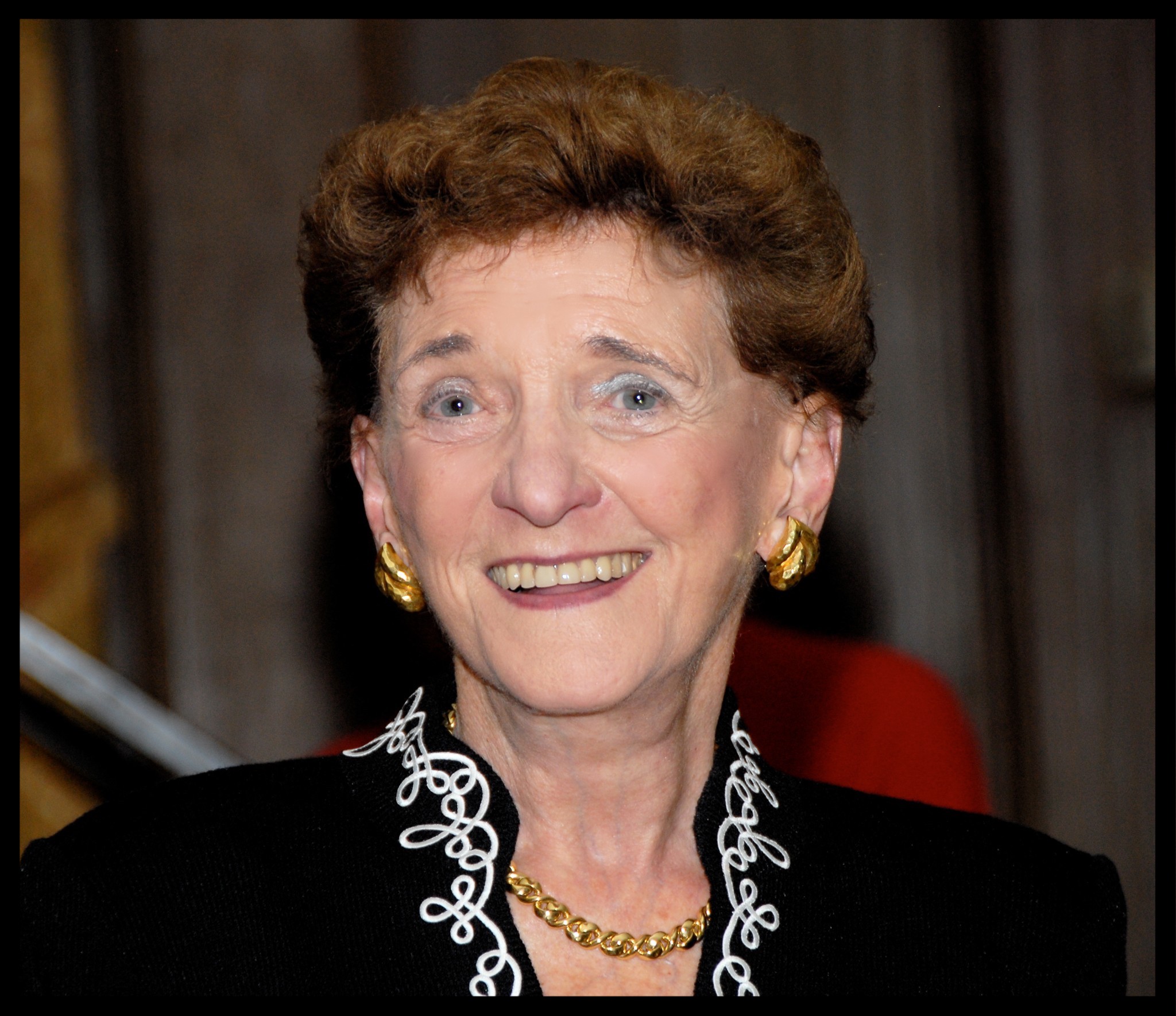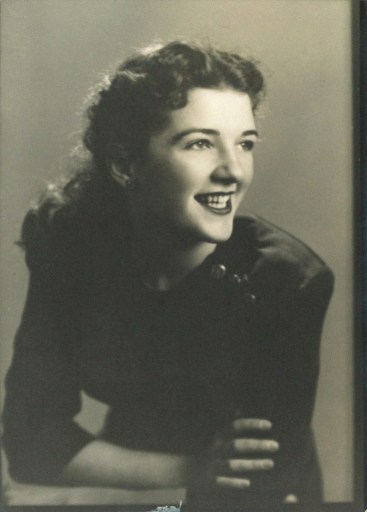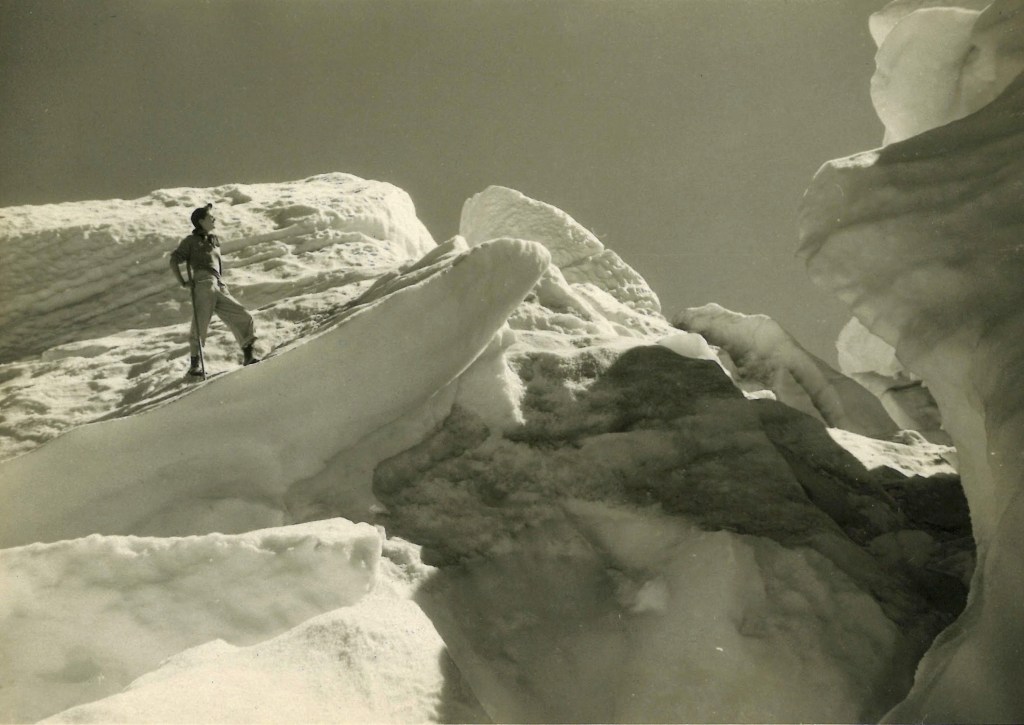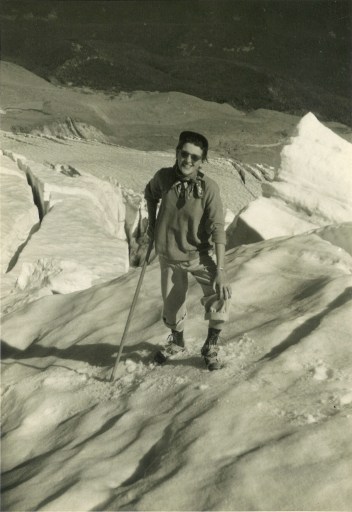
A mother picks you up when you fall down; a mother lifts your spirits up when you are feeling down. You will put your ultimate trust in her, as she will always in you. A mother is a pillar of strength, a matriarch; she shows us the way — how to be decent, honest, human beings, how to know right from wrong. She inspires our best. She will take you on hikes, teach you the names of the plants in her garden, divulge her recipes in life and your favorite meals from her kitchen, and always encourage the pursuit of dreams. She will always make you feel safe and secure; nobody will ever hurt her family — never on her watch.
That was my mother, Dolores, not just to my family and me, but the countless hundreds — maybe more — of her students, colleagues, friends, and almost everyone she touched during her 88 years, especially in the Music Department at UCSB. Indeed, as she took her last breath, she left this Earth a better place, a testament to her ability to bring out the best in others. “You just have to sharpen your sword,” as one of her former graduate students recalled her imploring with a knowing look, “to cut through the BS.” Another student wrote, “When Dr. Hsu smiled at me, it made me feel smart.”

Dolores had a ferocious wit, matched only by her gregarious laugh. Tenacious and with boundless energy, she led every day of her life with grace and style: sophisticated, supportive, and generous. That was my momma, and she’s now free from the fog of Alzheimer’s disease. Her spirit will always burn brightly, and she is at home with my father.
Born in 1930, Dolores Patricia Menstell was the child of Swiss and German immigrants, raised in Portland, Oregon, in the depths of the Great Depression. Her spirited personality was well matched to her lifelong pursuits of academic excellence and worldwide travel, her love of the outdoors and the arts, and her passion for music and the humanities. From the age of 3, she was known to stand on her soapbox, literally, and give long speeches to her family and neighbors. Before she was 12, my mother had already become a regular fixture in the Portland public arts community, performing complex classical piano recitals to the amazement of her audiences. While attending Lewis and Clark University, she scaled Mt. Hood three times with her uncle Walt, all before the age of 20.
Perhaps the most notable part of Dolores’s young life was her receipt of the prestigious Fulbright Scholar Award. She was the first woman from Oregon ever to be bestowed this honor; she was also one of the few to have it renewed for a second collegiate year. She studied in Austria and Germany before leaving on an adventure through South America, then returning home to complete her graduate studies. I remember listening to her narrate countless stories of those travels, living on a shoestring budget in postwar Europe, often sleeping on overnight trains to save money so as to have another day in a different city. I can remember her telling me about hitchhiking through France, tempered with, “I’d better not ever hear about you trying that!” She told me once about sleeping on the luggage rack above the seats one night; she just improvised, as she did so well. Dolores was a master of quick thinking throughout her illustrious life.

After returning from Europe, she completed her doctoral work at the University of Southern California, where she was awarded her PhD in Music History before she joined the Music Department faculty at the University of California, Santa Barbara, as a visiting lecturer in 1959. She met my father, Immanuel Hsu, a professor of modern Chinese history, at a university party. They were married in 1962 and remained happily together until his death in 2005. Shortly after their wedding, my mother joined my father on his Guggenheim Fellowship, traveling around the world, teaching and conducting research before returning to Santa Barbara and continuing their careers on the faculty at UCSB. In 2009, she continued teaching with professor emeritus status and working as a research professor until 2012.
One of my mother’s career pinnacles was the discovery of and research on the Henry Eichheim Collection of Musical Instruments. It came to be the launchpad for the Music Department’s Ethnomusicology program, which then grew into one of the most prestigious programs of its kind. In 1982, with the help of then curator and dear friend Shelly Ruston — the two had traveled extensively through Asia — Dolores had transferred ownership of nearly 400 East Asian instruments from the Santa Barbara Museum of Art to the University of California. She published an authoritative catalog of the original collection in 1984, curated its exhibition at the university, and became its director. Her legacy will live on through the curation and stewardship by the University Regents charged with its permanent preservation.

The resulting Music Ethno Program, which explores music in the context of culture, has graduated hundreds of students — passionate disciples of my mother, always known to them as “Professor Hsu,” never “Dolores.” She kept a constant eye on her flock, ensuring many of their future careers. Another of her major professional accomplishments was pioneering the Doctor of Musical Arts (DMA) Program at UCSB, graduating dozens of doctoral students in 19th-century music history.
Professor Hsu was well-known for her unvarnished assessments, a candor that earned her an affectionate nickname, “the Dragon Lady,” by many of the staff and faculty. While always encouraging and supportive of her adoring students, she suffered no fools. She could spot mediocrity, and she could be viciously critical of subpar performance. Yet she always took the high road and made her critiques with grace, and she was respected and revered by even the top campus brass.
In addition to her 12-year chairmanship of the Music Department, she served as associate dean of the College of Letters and Science. She loved a party, too, and during her years as department chair would often close the office around 4 o’clock on a Friday afternoon, draw the blinds, and break out the wine and cheese with her favorite comrades.
Then there were the golden years of Dolores’s life, energized by her passion for the community she loved so much. She worked closely with local schools and championed bringing major performances to Santa Barbara while serving on the board of Community Arts and Music Association, including four years as president. During that time, she brought the New York Philharmonic, Boston Symphony Orchestra, Dresden Staatskapelle, Royal Philharmonic, Los Angeles Philharmonic, and many other world-class orchestras to the stage of the remodeled Granada Theatre.
After such an amazing career, her greatest joys were always her community and family. That is how she will always be fondly remembered. We love you, Momma!

To remember Dolores Hsu, please make a donation to Community Arts Music Association (CAMA), Assisted Home Health and Hospice of Santa Barbara, Heritage House of Santa Barbara, and the California Central Coast Chapter of the Alzheimer’s Association. Thanks to Tiffany and Justin Rizzo-Weaver, Mark Trueblood, John Villar, Shelly Ruston, Jill Felber, UCSB Vice Chancellor David Marshall, and Chancellor Henry Yang, and Dolores’s students, friends, and colleagues who contributed to this piece.

You must be logged in to post a comment.